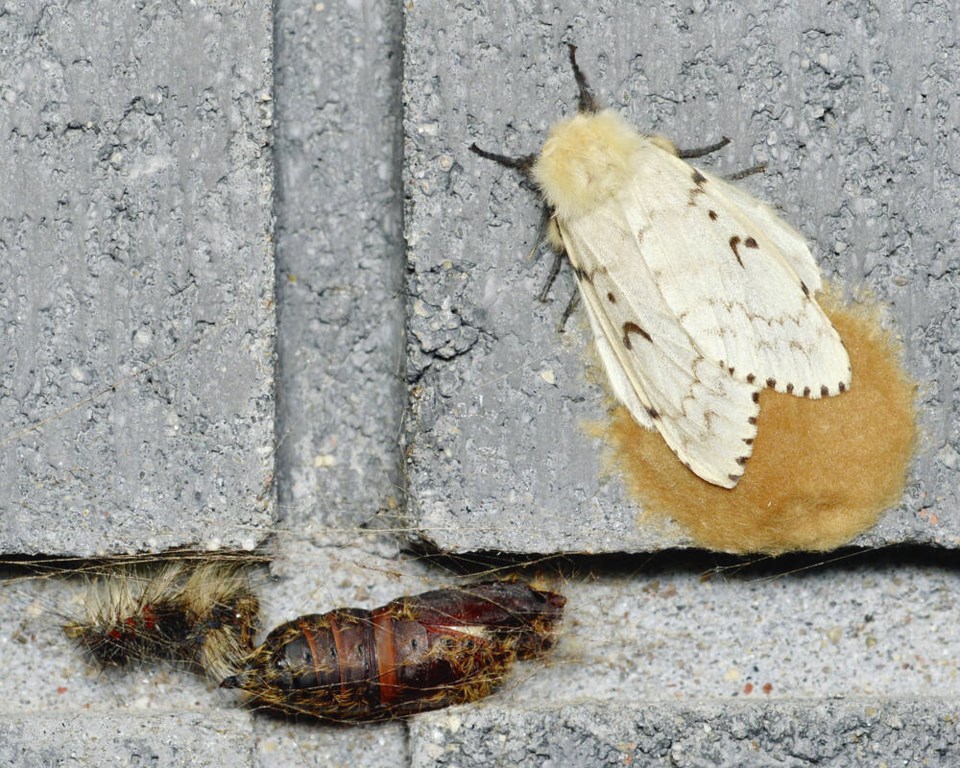Aerial spraying to combat spongy moths — formerly known as gypsy moths — will begin again this month in areas from Greater Victoria to Qualicum Beach, and on Saltspring Island.
The biological insecticide Foray 48B, which is used in organic farming, will be used, the Ministry of Forests said.
The insecticide affects only moth and butterfly caterpillars after ingestion, the ministry said, noting the active ingredient — bacillus thuringiensis variation kurstaki or BtK — appears naturally in urban, agricultural and forest soil.
BtK was approved for use against spongy moth larvae in Canada in 1961.
Previous spray treatments occurred in 2022 and 2023, with Salt Spring Island now added to the treatment area.
Spongy moth caterpillars feed on tree leaves and have defoliated sections of forests and residential areas in Ontario and the eastern United States in recent years, the ministry said.
Up to 300 species of trees and shrubs can be affected, including Garry oak, arbutus, red cedar, maple and fruit trees.
They have spread to B.C. on vehicles and equipment, and in 2021 were found to have increased dramatically in View Royal, Nanoose Bay and Cowichan Lake, as well as in the Fraser Valley and the Lower Mainland.
The spraying will be done in three applications between late April and mid-June under the direction of the B.C. Plant Protection Advisory Council’s Spongy Moth Technical Advisory Committee, the ministry said.
Each of the treatments will be seven to 10 days apart and could take up to two days to be completed. They will begin at first light and end by 7:30 a.m, and could be delayed or canceled with short notice due to weather conditions, the ministry said.
Areas to be treated include:
• North Saanich —170 hectares
• Gorge-Tillicum — 120 hectares
• Esquimalt and Victoria West — 31 hectares
• Belmont — 430 hectares
• Cowichan Bay — 126 hectares
• Nanaimo —130 hectares
• Qualicum Beach — 96 hectares
• Salt Spring Island — 48 hectares
For more details about spongy moths and spray activity, go to: or call 1-866-917-5999.




